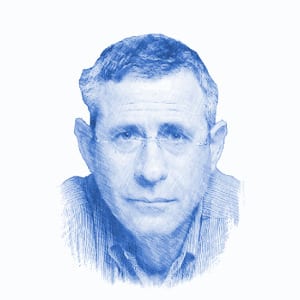Every few days I receive queries from readers who want to know more about the “Emirate Plan,” an idea I have suggested as a solution to the Israel-Palestinian Arab conflict in Judea and Samaria as well as Gaza. Recently, a reader sent me a list of questions and I am dedicating today’s article to his questions and reservations.
He wrote:
“I would like to acquaint you with some of the reservations I have concerning your plan and why it does not suit everyone involved:
1. In the interests of historical justice, the initial cooperation between seven Emirates was accomplished under the aegis of Great Britain, which pushed for the establishment of a council for cooperation which included a British representative, and promoting healthy economic cooperation and so on. It was not established as a result of Arab tribal cohesiveness and self-interest.
Response: The British were definitely involved in creating the Gulf Emirates, but only in the beginning, during the “trial” stage of their independence. After a short period of time, the Emirates took the reins into their own hands after gaining the necessary knowledge enabling them to run things on their own and the British stepped out of the picture. The Emirates exist because each rests on the foundation of a strong and dominant tribe. The British, after all, came up with the idea because of their ignominious defeat in Iraq, a country established thirty years earlier as a diverse conglomerate of tribes, ethnic groups, religions, and sects, who never united and never created a cohesive social fabric that could facilitate their definition as a nation. That is the reason for Iraq’s unsolvable problems – they began with its inception.
2. As soon as they stopped earning their keep as fishermen and realized there was a goldmine lying under their feet, the Emirates were smart enough to unite their forces in order to control the speed at which oil Is produced, and its price. Since they are all satisfied with the way things are working, there are no arguments and their governments are stable.
Response: Oil does play a decisive part in the Emirate economies, but it is not the only factor. Dubai has no oil or gas reserves, with only 1% of its economy based on the two resources. Despite this, Dubai is one of the richest countries in the world, while Iraq, Libya, Yemen, and Sudan are oil producers and some of the poorest. It is not oil reserves that are the dominant factor in making a nation wealthy and its citizens happy, but the social stability that leads to economic and political stability.
You mention, accurately so, that when everyone is satisfied, that prevents conflicts, but that is not a sufficient condition for tranquility: those who are satisfied must be able to live inside their own frameworks – or borders – while respecting those of their neighbors. That is the essence of the Emirate system.
3. On the other hand, Qatar and Bahrain left the Emirates and opted for complete independence.
Response: That is quite true, and so did Kuwait. It is important to recall that there is territorial contiguity between the seven United Emirates, while Qatar, Bahrain, and Kuwait – the latter an island in the Gulf – are not contiguous with them. In addition, the United Emirates are a fairly free confederation, with each keeping its sovereignty intact, somewhat like the EU, and the commonalities shared by the Emirates are not enough to form a single state. The system works mainly because each one of the Emirates runs its own affairs without any interference from other members of the union.
4. It is not only money that keeps them together, there is also a demographic factor at work: Less than 20% of those residing in the Emirates were born there. Most are immigrants or foreign workers, which means that the leading classes created a private empire without having to worry about the welfare of their citizens because there are none.
Response: True, there are those in the Emirates who complain about the fact that the original residents have become a minority in their own countries over the years. Still, they are the rightful citizens, while the foreign workers and businessmen are not citizens, have no political aspirations and no influence on local politics. The biggest problem facing the Emirates is not demographic, the problem is the fact that they do not work and have become a lazy and indolent consumer society whose time is spent purchasing more and more eye dropping goods, mainly luxury cars, expensive watches, gold jewelry and opulent homes. The Emirates’ citizens live the lives of the idle nouveau riche and their moral fabric is in dire need of improvement…
5. Their money enables them to equip themselves with American weapons and live under the wing of the US and the West, so Iran leaves them alone for the moment.
Response: The weapons purchased by the Emirates are no match for an Iranian attack. Since the Emirate army has no battle experience, they have joined the Saudi armed forces. The West has granted them an “insurance policy” in order to ensure the continued flow of needed oil and gas as well as to lower the price of energy in the world. The West defended the Emirates from Saddam Hussein and freed Kuwait in early 1991 after Saddam conquered it a year earlier. The West, at this point in time, is also protecting the Gulf Emirates from Iran, but the more the US frees itself from dependence on Gulf oil, the less it sees the Emirates as vital to the West’s economic security.
The rule is simple: The more legitimate a country’s regime is, the more stable it is because people have less of a tendency to turn to outside forces for help in struggles against the government. The more legitimate a regime is, the more it cares about its citizens and is willing to reach agreements with those able to provide for their needs: water, food, etc.
I will be happy to receive more questions from readers so that I can write about them in future articles.
I want to take the opportunity to wish everyone in the world a happy new year, one of peace and tranquility, security and growth, a year in which all the hopes in our hearts come true for the good of mankind, amen.
Reprinted with author’s permission from Israel National News




